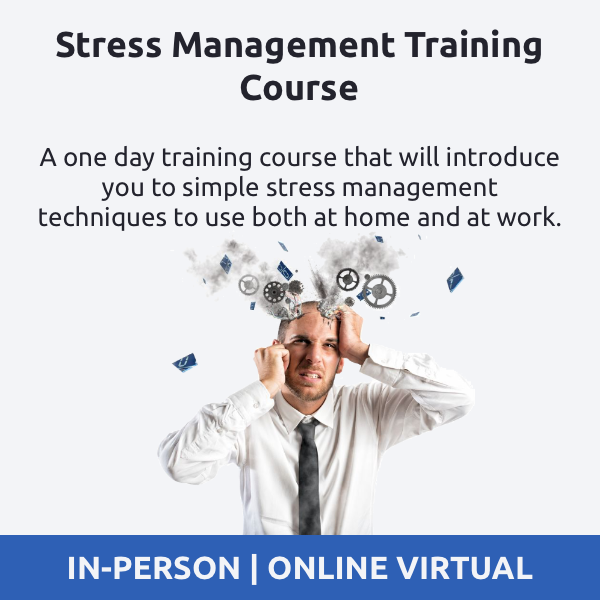What Triggers Stress?
We cover more about the points in this post in our Stress Training Course.
We are all living in very uncertain times. This uncertainty can trigger a stress response in our bodies designed to keep us safe. Unfortunately, this response can also cause our bodies to overreact to situations when we feel out of control. These reactions can give us anxiety and make us unproductive. We must recognise these symptoms and learn to control and manage them.
Most of us at various stages in our lives will have experienced stress in its various forms. We all have different stress triggers and situations that we find stressful. We also need to be aware that stress can creep up on us. A series of small insignificant stresses can build up to cause us to reach our threshold suddenly. Small amounts of stress can suddenly be the last straw that causes us to have physical and emotional overreactions.
We often overuse the word stress and say we are stressed when we are experiencing pressure. Some pressure is good to motivate ourselves. Stress is harmful and can have long-term health repercussions.
What is Stress?
‘A condition or feeling experienced when a person perceives that the demands exceed the personal and social resources the individual can mobilise’- S Lazerus
Stress is a feeling that we feel when we have lost control. The response we experience is called the Fight or Flight response. A part of our brain called the amygdala is triggered; it is a fast circuit that avoids our logical brain when we perceive a threat. It releases hormones that make us run faster and fight harder.
These hormones help us survive life-threatening events; unfortunately, this can trigger our body at any time we are in unexpected circumstances. These hormones also have a negative effect on our bodies, making us excitable, anxious and irritable. This state reduces our ability to work effectively with other people finding it difficult to perform precise, controlled skills and impedes concentration. We find it hard to make decisions.
10 Tips for Managing Your Stress Levels
Here are ten tips to manage our stress levels
- Learn the situations that trigger you. A trigger is something that takes you from a logical, calm state to an emotional, irrational one within seconds
- Become aware of your breathing. When we become stressed, our breathing becomes shallow, which causes more anxiety. Take steady breaths in for a slow count of 7 and exhale for the count of 11 until calm
- Take time to recharge your batteries, with relaxation, nutritious food and adequate sleep. Create boundaries by being assertive and protecting ‘Me time’ Our Assertiveness Course will help strengthen this skill
- Take control of situations, don’t bury your head, hoping the problem will go away. It only becomes worse. Taking control is empowering
- Be active, exercise reduces the feelings of emotional intensity, releases endorphins and allows clearer thoughts
- Set achievable goals which provide you with drive, direction and purpose
- Share your concerns with friends, colleagues and managers. ‘A problem shared is a problem halved’ Stay in contact with our online courses
- Work smarter not harder by adopting good time management practices. Our Time Management Course will help you.
- Write down three things that went well each day or that you are grateful for
- Accept the things we can not change and focus on the ones we can control
Stress Management Training Course
If you would like to learn more strategies for managing stress, then take a look at our Stress Management Training Course. We deliver our stress management course as an online virtual training course or an in-person training course.




